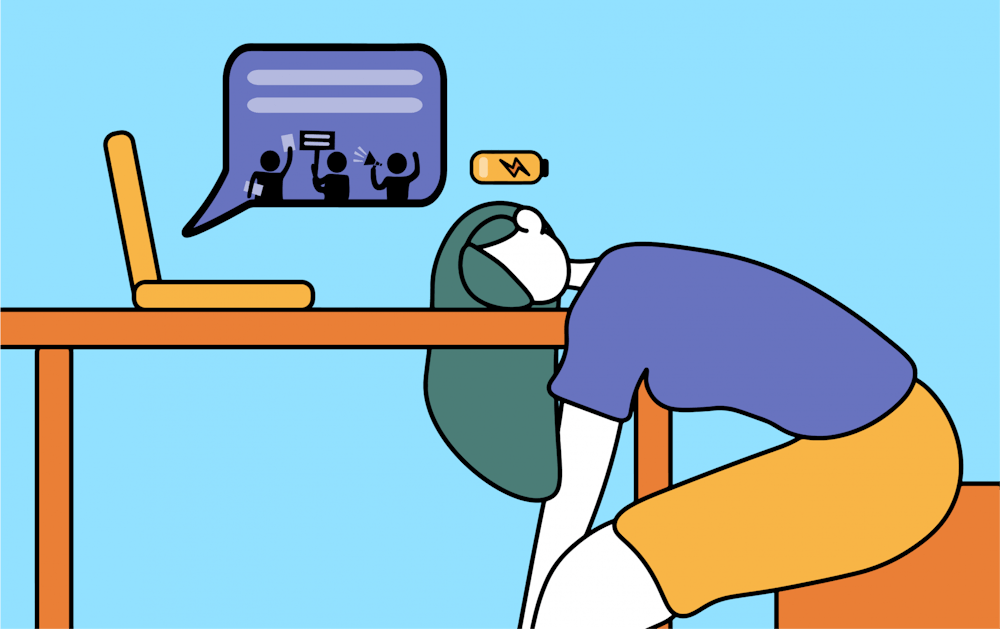Rallies, tabling events, fervent discussions in the Memorial Union.
That was life for an ASU student organization before the pandemic. But now, it's all in the past.
COVID-19 has upended ASU's political and activist organizations' ability to participate in activities central to their goals. Nevertheless, several groups have tried to remain active despite limited opportunities for in-person gatherings.
For example ASU College Libertarians, like many student organizations, have had to host meetings and events through Zoom.
"We're having Zoom meetings as often as possible, but we're finding that attendance has dwindled," said David Howman, president of ASU College Libertarians.
Howman, a master's student in justice studies, attributes this loss to burnout from Zoom fatigue.
"Zoom meetings aren't for everyone, especially those students who are already attending classes online and don't want to go to another Zoom meeting," Howman said.
The club is also struggling to get new members more involved. Howman explained the issue isn't a lack of interest, but rather the difficulty in staying engaged through a virtual format.
"We have people sign up, but they don't get involved because it's hard to get involved virtually," Howman said.
Another club, ASU Young Americans for Liberty, faces additional roadblocks as a new organization on campus. Having started their chapter earlier this semester, the club has had to navigate through the difficulties of recruiting members and keeping them engaged and active during the pandemic.
"It's been really hard to get members, especially since we're not an officially recognized club yet," said Ryne Bolick, president of the ASU YAL chapter.
The soon-to-be club has turned to social media as a means for publicity and advocacy.
"Something we've really been trying to do on Twitter is anytime there's a bill, we talk about the bill, we talk about the sponsor and what stage it's at,” said Bolick, a freshman studying mechanical engineering. "Representatives will retweet us, and that helps spread awareness of the club."
Other organizations are not just struggling to stay engaged with members and advocacy goals, but are merely trying to survive.
Joshua Valenzuela, president of NextGen ASU, which strives to increase youth voter turnout and campaign for progressive candidates, said his chapter used to have 10 to 20 people at every meeting but is now struggling to even find members.
The group's mission last semester was to secure a win for President Joe Biden in Arizona. Valenzuela, a sophomore studying politics and the economy, said members spent countless hours working toward the goal, but many found it difficult to adjust to a virtual landscape.
Campaigning for a candidate during COVID-19 meant members had "to sit on their computer or phone for hours on end," Valenzuela said.
The organization also lost a sponsorship, causing them to lose additional funding. Valenzuela believes the onset of pandemic, the loss of funding and the end of the election created the "perfect storm" that caused membership to drop.
"We are pretty much just an e-board at this moment," Valenzuela said.
Jacob Sumner, the coalition liaison for NextGen and March for Our Lives, said it's normal for an activist group's membership to decline when less is happening in the political realm. However, COVID-19 has exacerbated this issue and forced the club to prioritize recovering its membership instead of carrying out its normal activities.
"It's really hard for us to focus on general-issue advocacy because we are such a small group and we are still trying to rebuild (from) last semester," said Sumner, a sophomore double majoring in computer and political sciences. "It's going to take a bit of time before we can make a big impact like last year."
The organization is still active on social media, but has struggled to get interaction. Without the ability to host events or in-person meetings, the club feels as if it has exhausted all of its options.
"Everything we relied on got taken away from us," Valenzuela said.
The club said its survival will come down to its ability to maintain membership in the next few months. Valenzuela is hopeful for change, but says the group will soon be discussing whether to make "the difficult decision of dissolving."
"With how small we are, it's hard to really see a future at the moment," Valenzuela said.
Editor's Note: Ryne Bolick was a columnist for The State Press in 2020. Bolick did not contribute to the writing or editing of this article.
Reach the reporter at omccann1@asu.edu and follow @ocmccann on Twitter.
Like The State Press on Facebook and follow @statepress on Twitter.
Continue supporting student journalism and donate to The State Press today.




